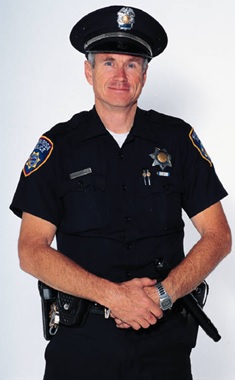 Recently, I wrote a blog post about PTSD in which I discussed the Nevada Supreme Court’s decision in the McGrath case, involving a police officer whose stress claim was denied because she claimed that a series of events over 18 months in her work as a traffic police officer, as opposed to one specific dangerous incident, caused her PTSD. The Court gave a very narrow interpretation to Nevada’s stress claim statute, NRS 616C.180, and stated that it was a requirement of the law as written that there be a specific event exposing the claimant to stress in time of danger that causes the mental stress, and that the law excludes gradual stress. The Court added, " Although we acknowledge that the alleged work-related harassment may have led to extreme stress, we conclude that McGrath does not qualify for workers’ compensation coverage under NRS 616C.180." McGrath v. State, Dep’t of Pub. Safety, 159 P.3d 239 (Nev. 2007).
Recently, I wrote a blog post about PTSD in which I discussed the Nevada Supreme Court’s decision in the McGrath case, involving a police officer whose stress claim was denied because she claimed that a series of events over 18 months in her work as a traffic police officer, as opposed to one specific dangerous incident, caused her PTSD. The Court gave a very narrow interpretation to Nevada’s stress claim statute, NRS 616C.180, and stated that it was a requirement of the law as written that there be a specific event exposing the claimant to stress in time of danger that causes the mental stress, and that the law excludes gradual stress. The Court added, " Although we acknowledge that the alleged work-related harassment may have led to extreme stress, we conclude that McGrath does not qualify for workers’ compensation coverage under NRS 616C.180." McGrath v. State, Dep’t of Pub. Safety, 159 P.3d 239 (Nev. 2007).
The McGrath case is an example of the Court not wanting to judicially legislate changes to the law which would expand workers’ compensation coverage. Instead, the Court leaves it to our state legislators to make changes to the law, particularly changes that will significantly impact local governments having to fiscally cover treatment and compensation benefits for police officers and similarly employed occupations such as fire fighters.
Let’s hope that we do see an amendment proposed in our next 2015 legislative session that would allow our police officers and fire fighters to get proper treatment and appropriate benefits for PTSD, without the officer having to testify that it is one, discrete dangerous event that is causing PTSD. It seems to me that the reality is that repeated exposure to danger in the line of duty will eventually culminate in one time too many when the cumulative stress is too much. It doesn’t make much sense to require that people in occupations that expose them to extraordinary and dangerous stressful situations every day should have to claim that one particular event is responsible for their stress disorder. The law as written is not consistent with the current medical literature on PTSD.
Paralegal Garth Baker of my office was an officer with the Las Vegas Metro Police Dept. He has written about his own PTSD and the lack of help currently available for officers. Garth is a Board Member of The Badge of Life, a group that offers psychological help for police officers.
The U.S. Department of Veterans Affairs appears to be stepping up efforts to identify and properly treat post-traumatic stress disorder of our service men and women. If you are suffering from PTSD, you might want to look at the information on the National Center for PTSD.
Certainly expanding workers’ compensation coverage to make treatment and compensation benefits more accessible to police officers and fire fighters will be costly. But does it make any sense to treat a legitimate, disabling psychological injury that arises out of a police officer or fire fighter’s employment any different than a disabling physical injury received at work? We seem to still be in the Dark Ages about mental illnesses. A competent psychologist, psychiatrist, and even most primary care physicians should be able to determine whether a police officer or fire fighter is suffering from an occupational PTSD.













